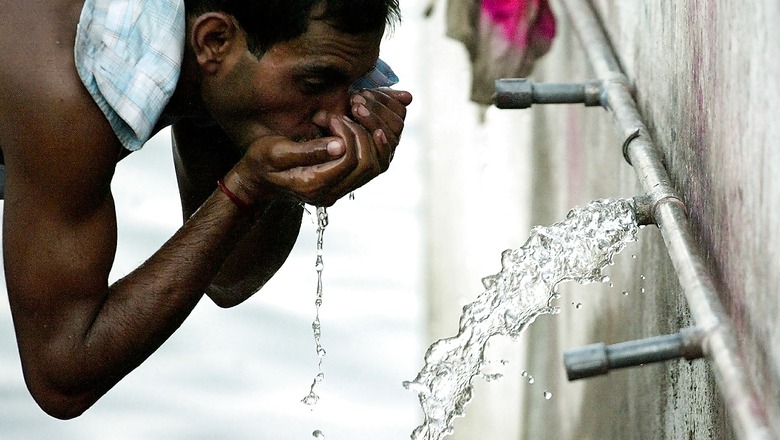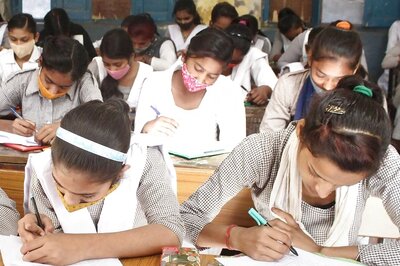
views
s18 onAccording to a recent report published by WaterAid, an international non-profit organisation that works towards making clean water accessible, it was projected that by 2030, water scarcity in some arid and semi-arid places would force between 24 million to 700 million people to leave their homes.
The report titled ‘Turn the tide: The state of the world’s water 2021′ also predicted that by 2050 around 5 billion people across the world would live in regions that have water scarcity. Currently, around four billion people live in such areas.
However, the most alarming revelation of the report is the devastating impact of climate change on the accessibility of water, and the need to make water management plans. The report states, “While the extent of some climate change effects cannot be completely predicted, such as the level of rainfall and precipitation, around 74% of natural disasters between 2001 and 2018 were water-related. The often-unpredictable impacts of climate change on the water means increased uncertainty, which makes planning around water management much more important.”
As the world battles the COVID-19 pandemic and every country’s healthcare sector is under added stress, the water crisis is only impacting people’s lives more profoundly. Most health care facilities, which did not have water access, had a far more difficult time dealing with this health crisis. The report states that across the world, one in every four healthcare facilities have no water services on-site, which in term affected the lives of two billion people.
The situation, however, is grimmer in the world’s 47 least developed countries (LDCs). In those countries, one in two healthcare facilities cannot even provide essential drinking water. Such lack of water impacts health workers’ lives, increases their health risks, and also takes up their precious time (which is generally spent in getting water on site), and deters them from treating patients.
There is an urgent need to focus climate finance towards water crisis issue under such circumstances. According to WaterAid’s report, while climate change impacts everyone, for the billions of people from a marginalised community, who do not have access to water through formal channels, life is far worse. It doesn’t help that nations facing the brunt of the climate crisis are some of the world’s poorest and least developed countries.
The report states, “In 2009, richer nations committed to give $100 billion of climate finance a year by 2020, from public and private sources to these countries to help them address the climate crisis. Climate finance provided and mobilised by developed countries for climate action in developing countries only reached $78.9 billion in 2018. But it is estimated that only around 5% of the total global spending on climate change supports adaptation. Even then, that 5% figure is spread across all countries – not targeted at those that need it the most. There is very little correlation between how vulnerable a country is and how much money it receives to help to respond to the climate crisis. Low levels of inefficiently allocated climate finance are failing to effectively help countries prepare for climate change and placing billions of lives at risk.”
Some of the most climate-vulnerable countries only receive $1 per person per year for investment in water. Addressing this disparity between the scale of water accessibility problems and the investments being made towards finding solutions, VK Madhavan, WaterAid India’s ChiefExecutive said, “Climate change is making it more difficult for vulnerable people to access clean water when they need it, and it is a great injustice that the world’s poorest people, who have contributed the least to the crisis, must bear the brunt of its most destructive impacts. Unless communities have access to a reliable and safe source of water, their health will suffer, and they will be burdened with spending more and more time in accessing water, denying them the opportunity to focus instead on creating a better life.”
“All of us need to step up now, commit to reductions and recognise the critical role clean water plays in helping communities cope with climate-change and recovering quickly from related extreme weather events,” he added.
Read all the Latest News, Breaking News and Coronavirus News here



















Comments
0 comment